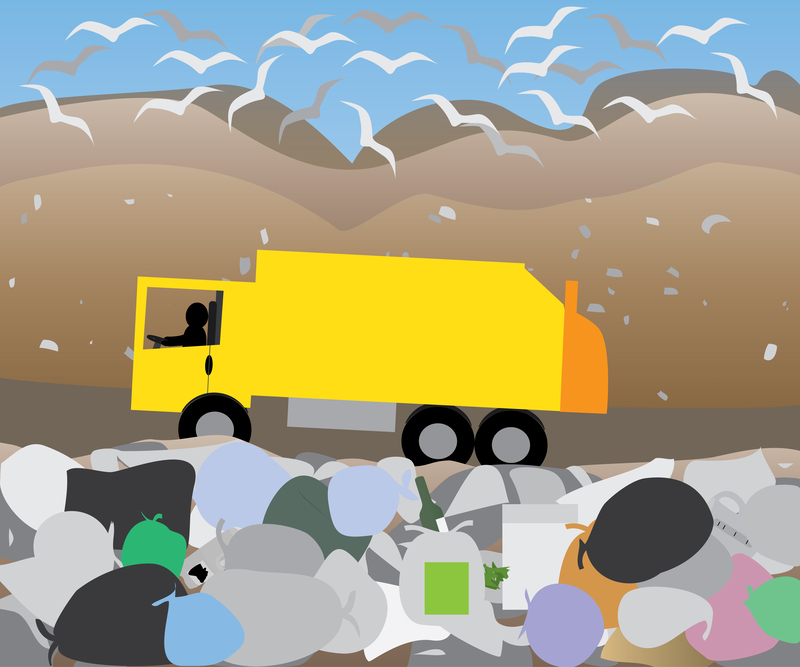The Smart Guide to Saving Money on Bulky Waste Items
Every household, office, or business will eventually face the disruptive challenge of disposing of large, unwanted items. Whether it's an old sofa, a broken washing machine, or outdated office furniture, getting rid of bulky waste can quickly become an expensive affair if you don't know your options. Fortunately, there are many smart, cost-effective ways to handle these items responsibly and affordably.
This comprehensive guide explores everything you need to know about saving money on bulky waste disposal, offering clever tips, alternative solutions, and essential resources to streamline the process without breaking the bank.
Table of Contents
- Understanding Bulky Waste
- Why is Bulky Waste Disposal So Costly?
- Ways to Save Money on Bulky Waste Disposal
- Free or Low-Cost Bulky Waste Disposal Options
- Recycling, Upcycling, and Reusing Bulky Waste
- Community Solutions for Bulky Waste
- Hiring Bulky Waste Collection Services Efficiently
- Top Tips to Cut Costs Further
- FAQs About Affordable Bulky Waste Disposal
- Final Thoughts: The Smart Way to Save on Bulky Waste
Understanding Bulky Waste
Bulky waste (also called large or oversized waste items) refers to objects that are too big to be collected by regular rubbish or curbside recycling services.
What is Considered a Bulky Waste Item?
- Furniture: Sofas, beds, mattresses, wardrobes, tables, and armchairs.
- Appliances: Refrigerators, washing machines, cookers, dishwashers, and tumble dryers.
- Garden Waste: Large tree branches, garden sheds, fences, and play equipment.
- DIY Waste: Bathtubs, sinks, doors, carpets, and old flooring.
- Miscellaneous Large Items: Bikes, gym equipment, TVs, and more.
These large waste items can vary by location, so always check with your local waste authority for a complete list of what they accept as bulky or hard waste.
Why is Bulky Waste Disposal So Costly?
Bulky waste removal often costs significantly more than regular trash due to:
- Special Handling and Transportation: Big items require larger vehicles, heavy lifting, and sometimes more than one worker.
- Environmental Regulations: Many items cannot be landfilled (e.g., electronics or mattresses) and must be processed separately, adding extra costs.
- Recycling and Disposal Fees: Disposal centers charge higher fees for items that are hard to break down or process.
- Limited Free Collection: Many councils only offer a restricted number of free pick-ups each year; extra collections cost more.
Understanding these cost factors is key to finding ways to save on oversized waste removal.
Ways to Save Money on Bulky Waste Disposal
Ready to take action? Below are the smartest, most cost-effective strategies for saving money on bulky waste disposal:
1. Determine If a Free Collection Service Is Available
- Many local councils or municipalities offer free annual or semi-annual collection for large waste items. Contact your local government's waste department or check their website for eligibility, schedules, and required arrangements.
- Some areas grant extra collections to seniors, disabled residents, or during special cleanup weeks at no extra cost.
2. Donate Items in Usable Condition
- Charities, shelters, and thrift stores often welcome furniture and appliances that are still in good working order. This not only cuts your disposal costs down to zero but also benefits the community.
- Use platforms like Facebook Marketplace, Freecycle, or Craigslist to give away usable items for free pickup.
3. Repurpose or Upcycle Bulky Discards
- Transform an old dresser into a TV console, or use wooden bed slats for shelving: creative upcycling saves money and gives new life to old furniture.
- Look for local "repair cafes" or upcycling workshops who may accept materials for free.
4. Break Down Items Yourself
- Disassemble furniture and cut large items into smaller pieces where possible. You may be able to fit these into regular rubbish bins over several collection periods, or save on collection costs by paying only for what won't fit.
5. Use Community Bulky Waste Days
- Neighborhood "bulky waste" or "clean-up" days allow residents to bring large items to a drop-off point at reduced or no charge. Watch for local announcements!
6. Compare Private Collection Prices
- Should you need to hire a professional, always check prices from at least three junk removal services.
- Inquire if they offer discounts for multiple items, block bookings with neighbors, or off-peak times.
Free or Low-Cost Bulky Waste Disposal Options
When local government options are not available, try these affordable bulky waste removal solutions:
1. DIY Drop-Off at Recycling Centers
- Many towns offer household waste recycling centers (HWRC) or "tips" where residents can drop off bulky items for free or for a minimal fee. You'll need access to a vehicle large enough to transport your items.
- Some centers offer free disposal for certain items like mattresses or appliances due to recycling subsidies.
2. Partner with Neighbors
- If you and your neighbors all have oversized waste, join together. Pooling waste can result in a lower per-item or per-ton cost when hiring a removal company.
3. Ask for Retailer Take-Back Programs
- If you're replacing an old appliance or mattress, many retailers will remove your old item for free or a low fee when delivering the new one.
Recycling, Upcycling, and Reusing Bulky Waste
Not only do recycling and upcycling strategies save you money, but they're also better for the environment. Here's how to make your large unwanted items work for you or for someone else:
- Mattresses: Specialized recycling programs exist that turn old mattresses into carpet underlay or insulation.
- Electronics: Your council or local electronic store may have a "take-back" scheme for TVs, computers, and white goods.
- Furniture: Upcycle tables into desks, beds into benches, etc. Search online for DIY inspiration.
- Metal Items: Scrap metal merchants may pay you for old radiators, beds, or fitness equipment.
By checking local Facebook groups, community sites, or council resources, you can find creative, low-cost--and sometimes even profitable!--ways to dispose of bulky items.
Community Solutions for Bulky Waste
Tapping into community resources can make bulky waste management easier and cheaper:
- Neighborhood Tool Libraries: Rent a van or borrow tools for disassembling or transporting items.
- Residents' Associations: Find out if there are group collection days or bulk discounts negotiated with local companies.
- Local Charities: Many run regular collection drives for furniture and less-worn household items.
- School or Faith Groups: Fundraising "swap days" or donation drives may accept items, reducing your waste and supporting a good cause.
Hiring Bulky Waste Collection Services Efficiently
If you must pay for professional bulky waste removal, make your money go further with these tips:
How to Choose an Affordable Bulky Waste Removal Service
- Check Credentials: Ensure your local provider is licensed and insured to dispose of waste lawfully.
- Request an Estimate: Share photos and item dimensions for a realistic quote--avoid "surprise" fees.
- Combine Jobs: Include neighbors or arrange a "clear-out day" to maximize the value for money.
- Ask About Discounts: Many companies offer discounts for flexible scheduling, advance booking, or larger loads.
Don't Forget Hidden Fees!
- Check if the quote includes disposal charges, parking, congestion fees, labor for item removal from inside premises, or extra charges for appliances or hazardous items.
Top Tips to Cut Costs Further
- Plan Ahead: Group all your bulky waste removal needs together for fewer trips or collections.
- Sort Materials: Segregate what can be donated, sold, recycled, or must be disposed of for maximum cost savings.
- Negotiate: If booking a commercial service, ask if they will price match or offer a better deal mid-week or outside peak season.
- Learn Local Laws: Avoid fines for incorrect dumping by following your area's waste disposal rules.
- Try to Sell: Even "ugly" items may find buyers interested in parts or DIY projects.
FAQs About Affordable Bulky Waste Disposal
-
Can I leave bulky items on the curb?
Not usually unless it is a scheduled collection day. Illegal dumping can incur heavy fines. -
What should I do with hazardous bulky waste like fridges?
Fridges and other appliances with hazardous components must go to specialized recycling centers. Many councils collect these separately. -
How often can I use my council's free bulky waste collection?
This varies by area, often once or twice per year. Extra collections are generally chargeable. -
Is there help for elderly or disabled residents?
Many local authorities offer assisted collection or extra collections for those in need. Enquire with your local waste team.
Final Thoughts: The Smart Way to Save on Bulky Waste
Bulky waste disposal doesn't need to be expensive or stressful. By leveraging free and low-cost community resources, planning ahead, and using the recycling and reuse options available, you can save money--and even help the environment in the process.
Keep these tips in mind next time you're confronted with a large and heavy item to dispose of. Smart, informed choices mean a cleaner home, a lighter wallet, and a greener planet.
If you have additional questions about saving money on bulky waste items, reach out to your local council or waste authority--they often have more options and advice than you might think!





